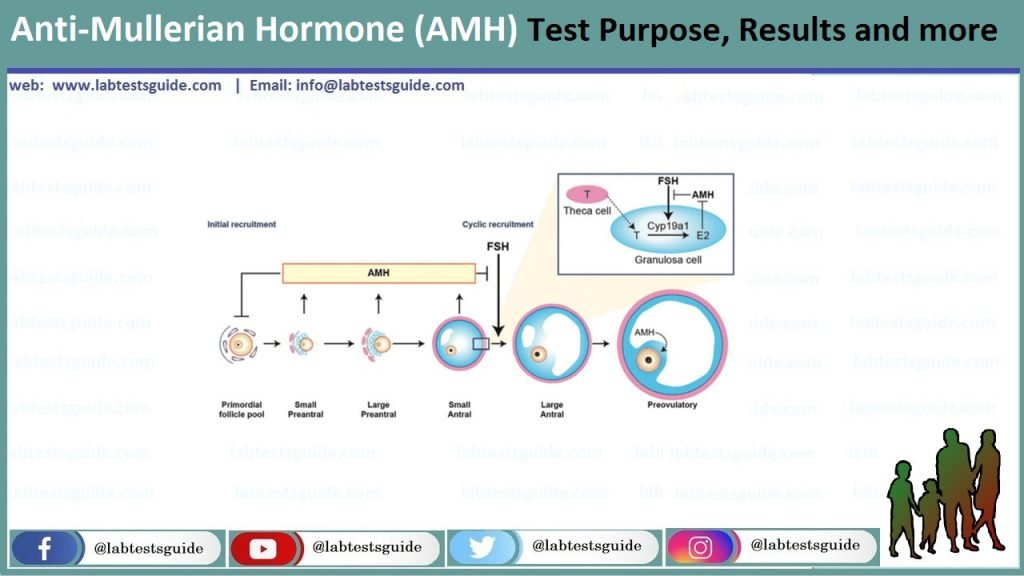Anti-Mullerian Hormone (AMH) is a protein hormone produced by cells within the ovary. Understanding your AMH levels can help to assess your ovarian egg reserve and therefore your fertility. AMH levels are, on average, lower in older women (particularly over the age of 40) and higher in women with Polycystic Ovaries (PCO) or Polycystic Ovary Syndrome (PCOS).

When To Get Tested?
When a healthcare practitioner wants to evaluate a woman’s fertility, predict onset of menopause, suspects PCOS, or wants to evaluate the cause of male characteristics in a female (virilization); sometimes prior to some assisted reproductive procedures; periodically when a woman is undergoing treatment for an AMH-producing ovarian cancer; when it is suspected that the testicles of an infant boy are absent, hidden, or not functioning properly
What is an AMH test?
An anti-mullerian hormone test (AMH) can be done at any time in the menstrual cycle, as your amh levels are stable throughout the cycle. It is a marker for ovarian (egg) reserve and is assessed via an AMH blood test.
For accurate assessment, AMH tests should be combined with an antral follicle count (AFC), which is the number of small follicles within both ovaries. AFC is done using an expert fertility ultrasound scan. CREATE Fertility are the pioneers of advanced fertility ultrasound techniques, providing us with an accurate assessment of your fertility.
AMH tests may also be used to:
- Predict the start of menopause, a time in a woman’s life when her menstrual periods have stopped and she can’t become pregnant anymore. It usually starts when a woman is around 50 years old.
- Find out the reason for early menopause
- Help find out the reason for amenorrhea, the lack of menstruation. It is most often diagnosed in girls who haven’t started menstruating by the age of 15 and in women who have missed several periods.
- Help diagnose polycystic ovary syndrome (PCOS), a hormonal disorder that is a common cause of female infertility, the inability to get pregnant
- Check infants with genitals that are not clearly identified as male or female
- Monitor women who have certain types of ovarian cancer
What if I have low AMH levels?
If you have very low AMH levels, you are likely to respond poorly to the drug doses involved in conventional IVF. However, Natural IVF and Modified Natural IVF can be more a more suitable treatment for those with low ovarian reserve.
CREATE Fertility is a pioneer in offering this IVF treatment as an option for patients who have low ovarian reserve. At CREATE we will treat any woman under the age of 50 with her own eggs if she is still ovulating and have given many women the chance to try after they have been turned away elsewhere.
If you’re worried about low AMH levels and the implications on your fertility it is important to discuss these concerns with a specialist.
Related Articles:
RELATED POSTS
View all
